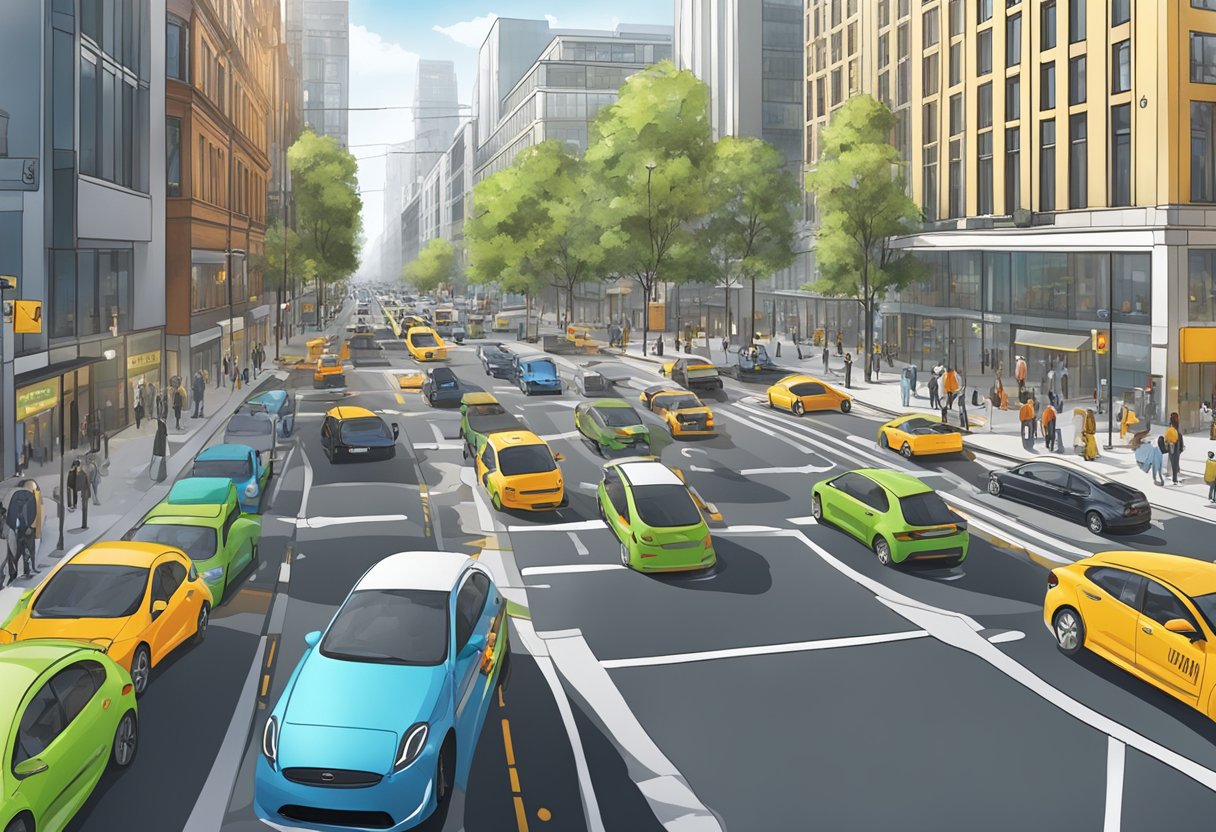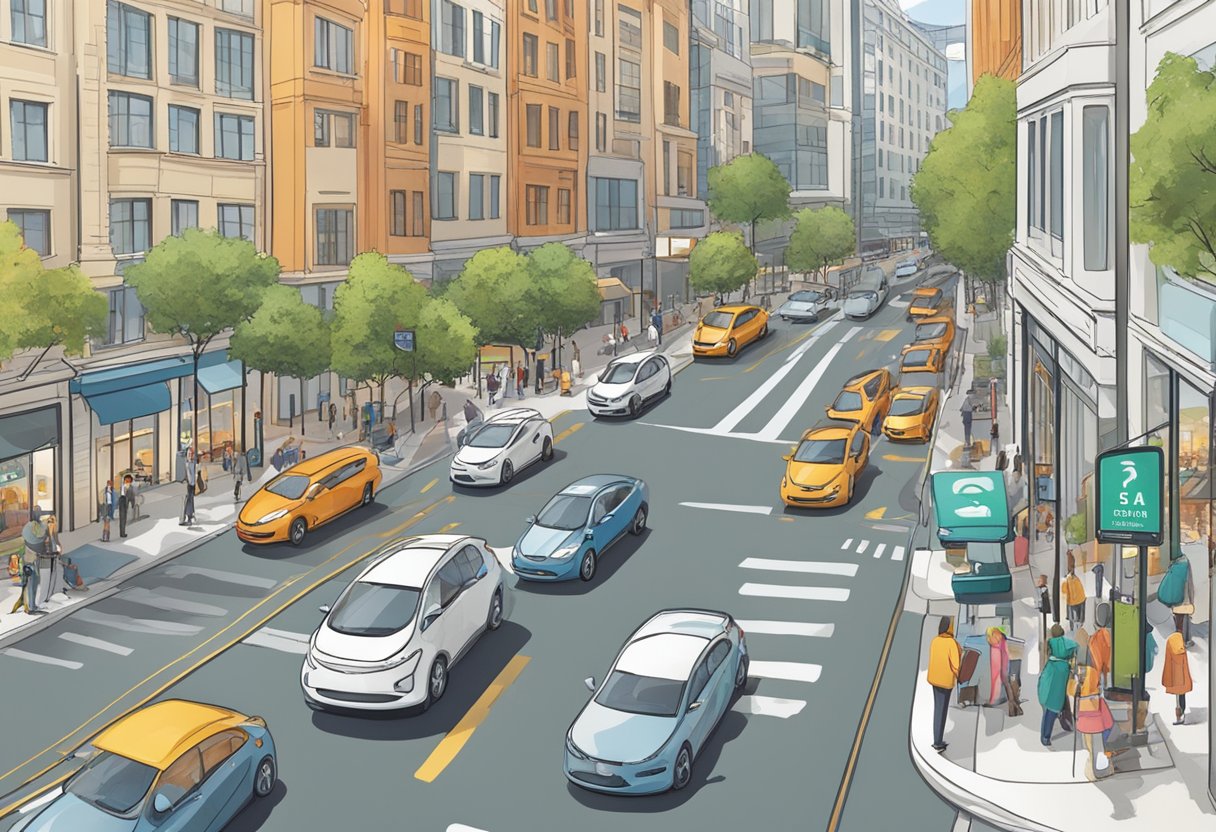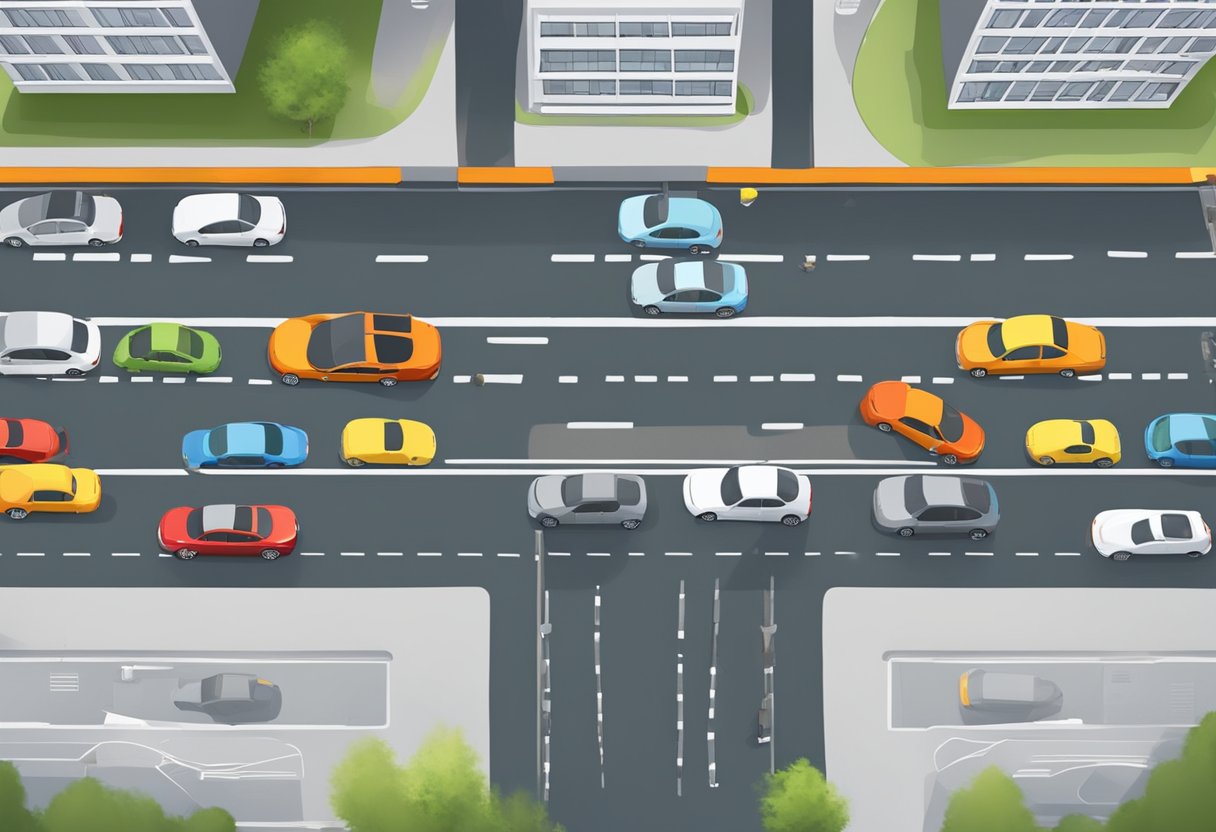Implementing smart parking solutions is becoming increasingly popular as a way to reduce city congestion.
The rise of urbanization has led to an increase in the number of cars on the road, which has resulted in traffic congestion and air pollution.
Smart parking solutions can help alleviate these problems by guiding drivers to available parking spaces. This reduces the need for aimless circling and minimizes congestion.
Smart parking solutions utilize a combination of sensors and real-time data to provide drivers with information on the closest available parking spaces and prices, through either signage, apps, or dashboards.
Real-time parking guidance can help optimize traffic flow, reduce travel times, and subsequently decrease carbon emissions, fostering sustainability.
By utilizing technology to optimize parking space usage, reduce congestion, and improve the overall quality of life, these solutions address a pressing challenge faced by urban centers worldwide.
Implementing smart parking solutions is not without its challenges, however.
The technological foundations of smart parking systems can be complex, requiring significant investment and maintenance.
There may also be concerns about data privacy and security.
Nevertheless, the benefits of smart parking solutions in reducing city congestion and improving urban mobility are clear, and cities around the world are increasingly turning to these solutions to address these challenges.
Key Takeaways
- Smart parking solutions can help alleviate traffic congestion and air pollution in cities by guiding drivers to available parking spaces.
- Real-time parking guidance can optimize traffic flow, reduce travel times, and decrease carbon emissions, fostering sustainability.
- While there are challenges to implementing smart parking solutions, the benefits in reducing city congestion and improving urban mobility make them an increasingly popular option for cities worldwide.
The Role of Smart Parking in Alleviating Urban Congestion
Understanding Traffic Congestion and Mobility Challenges
Traffic congestion is a persistent problem in urban areas, causing significant delays, frustration, and economic losses.
Congestion results from various factors, such as population growth, urbanization, inadequate infrastructure, and inefficient transportation systems.
It affects not only commuters but also businesses, emergency services, and the environment.
Moreover, congestion leads to increased travel time, fuel consumption, emissions, and accidents, reducing the overall efficiency and sustainability of cities.
Mobility challenges are closely related to congestion, as they involve the movement of people and goods within and between cities.
Mobility issues include limited access to transportation options, high costs, long waiting times, safety concerns, and poor connectivity.
They affect different groups of people, such as low-income, elderly, disabled, and rural residents, who may face additional barriers to mobility.
Therefore, addressing mobility challenges requires a comprehensive and inclusive approach that considers the needs and preferences of all users.
Impact of Smart Parking on Traffic Flow and Travel Time
Smart parking solutions can play a significant role in alleviating urban congestion and addressing mobility challenges.
By using advanced technologies, such as sensors, cameras, and data analytics, smart parking systems can optimize the utilization of parking spaces, reduce search time, and improve the accuracy and availability of parking information.
This, in turn, can lead to smoother traffic flow, reduced emissions, and improved safety.
Moreover, smart parking can enhance the efficiency and convenience of transportation modes, such as public transit, biking, and walking.
By providing real-time parking guidance, smart parking systems can help users plan their trips more effectively, avoid congested areas, and reduce travel time.
Additionally, smart parking can support the integration of different transportation modes, such as bike-sharing and car-sharing, by providing seamless and secure parking options.
Technological Foundations of Smart Parking Systems
Smart parking systems are designed to reduce traffic congestion and improve parking availability in urban areas.
Sensors and IoT Integration in Smart Parking
Smart parking systems use a network of sensors to detect the occupancy status of parking spaces in real-time.
These sensors are integrated with IoT technologies to transmit data to a central server, which processes the information and provides real-time updates to drivers on available parking spaces.
The sensors used in smart parking systems can be of various types, including ultrasonic, infrared, and magnetic sensors.
These sensors are designed to be durable, weather-resistant, and low-maintenance, making them ideal for long-term use in parking lots and garages.
Data Analytics and Real-Time Information
Smart parking systems rely on data analytics to optimize parking resources and improve the overall parking experience for drivers.
Data analytics algorithms are used to process the data collected by sensors and provide real-time information on parking availability, occupancy rates, and other metrics.
Real-time information is displayed on digital signage, mobile apps, and other platforms to help drivers find available parking spaces quickly and easily.
This information can also be used by parking managers to optimize parking policies and improve the overall efficiency of parking resources.
Innovations in Space Management and Parking Policies
Smart parking systems are also driving innovations in space management and parking policies.
These systems can be used to implement dynamic pricing models, which adjust parking rates based on demand and availability.
They can also be used to implement policies such as time-limited parking, which encourages turnover and improves parking availability.
In addition, smart parking systems can be used to track parking violations and issue fines automatically, reducing the workload of parking enforcement personnel.
These innovations in space management and parking policies are helping to improve the overall efficiency of parking resources and reduce traffic congestion in urban areas.
Benefits and Challenges of Smart Parking Solutions

Smart parking solutions are designed to address the growing challenges of traffic congestion and limited parking space in urban areas.
While these solutions offer several benefits, they also come with a few challenges that need to be addressed for successful implementation. This section discusses the benefits and challenges of smart parking solutions.
Enhancing Parking Experience and Accessibility
One of the primary benefits of smart parking solutions is that they enhance parking experience and accessibility.
Smart parking systems use real-time data and intelligent parking management systems to streamline parking operations, reducing the time spent searching for parking spots.
This translates into shorter commute times, less fuel consumption, and reduced emissions.
Moreover, smart parking solutions can improve accessibility for people with disabilities, making it easier for them to find parking spots.
Economic and Environmental Advantages
Smart parking solutions offer several economic and environmental advantages.
By reducing the time spent searching for parking spots, smart parking solutions can help reduce fuel consumption and emissions, resulting in a cleaner environment.
Moreover, smart parking solutions can generate revenue for cities by charging for parking based on demand. This revenue can be used to fund other smart city initiatives.
Addressing Implementation Challenges and Acceptance
While smart parking solutions offer several benefits, they also come with a few challenges that need to be addressed for successful implementation.
One of the primary challenges is the cost of implementation. Smart parking systems require a significant investment in hardware, software, and infrastructure.
Moreover, the acceptance of smart parking solutions among the public can be a challenge. Some people may be resistant to change, and it may take time for them to get used to the new system.
To address these challenges, cities need to develop a comprehensive plan for the implementation of smart parking solutions.
This plan should include a cost-benefit analysis, stakeholder engagement, and a public awareness campaign.
By addressing these challenges, cities can successfully implement smart parking solutions and reap the benefits they offer.
Future Prospects and Expansion of Smart Parking

As cities continue to grow and traffic congestion becomes a more pressing issue, smart parking solutions are poised to play an increasingly important role in urban planning and infrastructure development.
With the continuing development of electric mobility and autonomous vehicles, the potential for smart parking to reduce congestion and improve traffic flow is greater than ever before.
Integration with Autonomous Vehicles and Electric Mobility
As electric vehicles become more common and autonomous vehicles become a reality, smart parking solutions will be able to integrate with these technologies to further reduce congestion and improve traffic flow.
For example, smart parking systems can be designed to communicate with electric vehicles and guide them to available charging stations, ensuring that drivers can easily find a place to charge their vehicles and reducing the need for aimless circling.
Similarly, autonomous vehicles can be guided to available parking spaces, reducing the need for human intervention and further improving traffic flow.
Scaling Smart Parking for Smart Cities Development
As smart cities continue to develop, smart parking solutions will play an increasingly important role in urban planning and infrastructure development.
By optimizing parking space usage and reducing congestion, smart parking solutions can help cities become more efficient, sustainable, and livable.
To achieve this, smart parking solutions will need to be scaled to meet the needs of large urban areas.
A focus on developing infrastructure and technology that can support the integration of smart parking with other smart city initiatives is also necessary.



